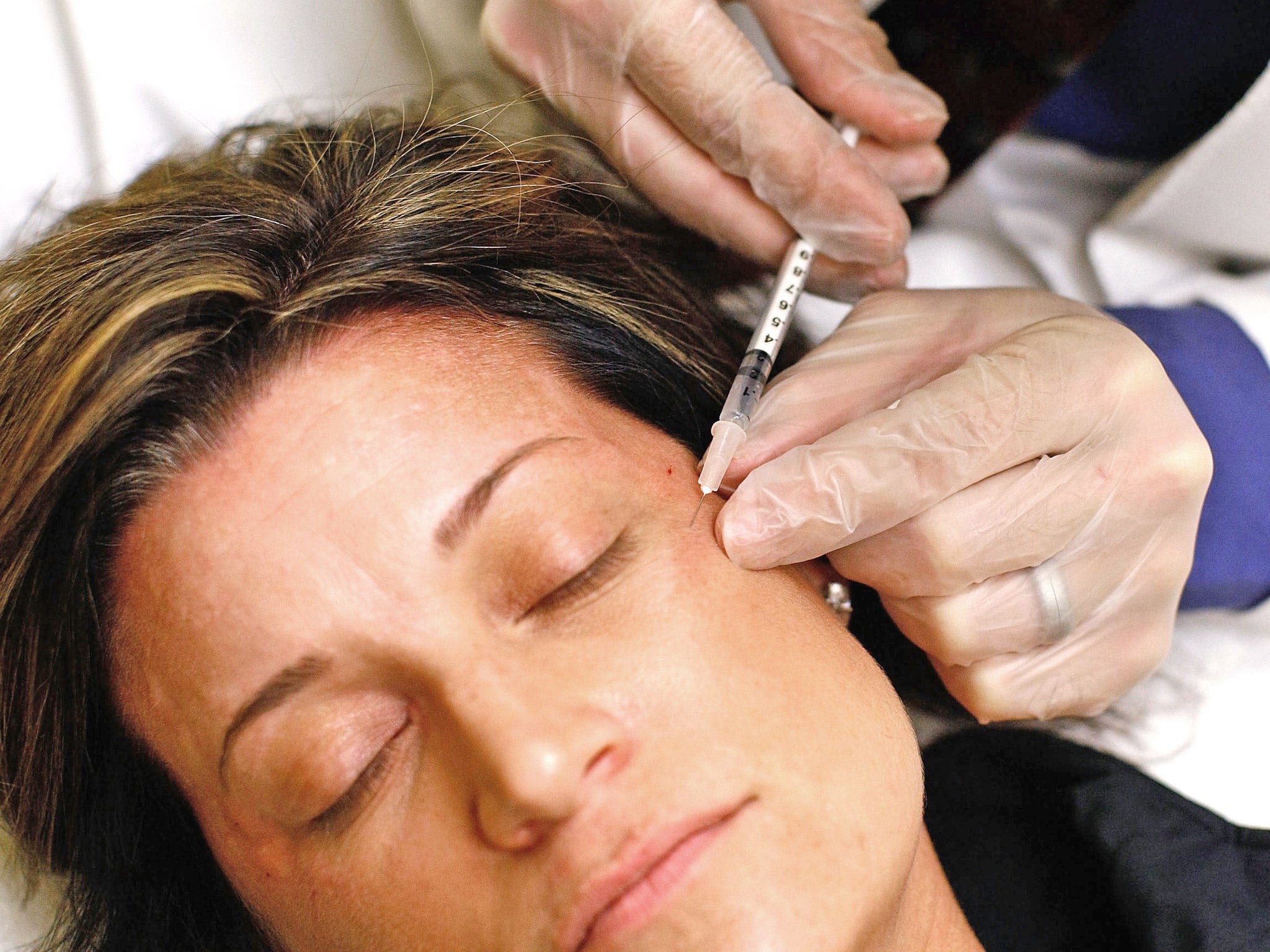'Explosive growth' of Botox treatments putting public at risk, NHS review warns

Your support helps us to tell the story
From reproductive rights to climate change to Big Tech, The Independent is on the ground when the story is developing. Whether it's investigating the financials of Elon Musk's pro-Trump PAC or producing our latest documentary, 'The A Word', which shines a light on the American women fighting for reproductive rights, we know how important it is to parse out the facts from the messaging.
At such a critical moment in US history, we need reporters on the ground. Your donation allows us to keep sending journalists to speak to both sides of the story.
The Independent is trusted by Americans across the entire political spectrum. And unlike many other quality news outlets, we choose not to lock Americans out of our reporting and analysis with paywalls. We believe quality journalism should be available to everyone, paid for by those who can afford it.
Your support makes all the difference.Most people who undergo cosmetic procedures have no more protection than someone buying a toothbrush, according to an independent review which has proposed a range of new curbs on the industry.
Nine out of 10 cosmetic procedures are non-surgical treatments such as dermal fillers or Botox injections. They can currently be performed by anyone. The market, worth £2.6bn in 2010, is projected to rise to £3.6bn by 2015.
The review board, chaired by NHS medical director Professor Sir Bruce Keogh, said that they were "surprised" to learn that such treatments are almost entirely unregulated, despite the risk of major and irreversible damage to patient health. Dermal fillers, which are injected to reduce wrinkles and plump up lips, are not currently classed as medical devices so patients have no more protection than people who purchase everyday items.
Calling for new legal curbs, the review described the "explosive growth" of dermal fillers as a "crisis waiting to happen".
The review, set up following the PIP breast implant scandal, calls for restrictions on advertising, a national register of implantable devices and a requirement on all clinics, NHS and private, to publish their complication rates. Dermal fillers should be available on prescription only, all practitioners should be properly qualified and a "private health" ombudsman should be appointed to deal with complaints about all private medical care, including cosmetic procedures.
Sir Bruce said: "We have heard terrible reports about people who have trusted a cosmetic practitioner to help them but, when things have gone wrong, they have been left high and dry with no help. These people have not had the safety net that those using the NHS have. This needs to change."
The Chelsea and Westminster hospital in London treated 12 patients who came to the Accident and Emergency department following cosmetic procedures over a 15-month period. Between them they spent 66 nights in hospital, had 34 outpatient visits and cost the NHS £43,000. Complications associated with them include infection, lumpiness, ulcers, tissue necrosis, prolonged swelling, allergic reaction and blindness.
The nine-member review panel says patients seeking cosmetic treatments are often vulnerable and it is essential that their health is protected.
One in ten procedures involve surgery, such as face lifts, tummy tucks and breast implants, but there are no controls to ensure only qualified surgeons carry them out and clinics offer procedures which they perform too infrequently to maintain the necessary skills. Surgeons should obtain consent from patients in person, so they can discuss the risks and benefits, rather than leaving it to sales people, the review says.
Health minister Dan Poulter said the Government would respond to the recommendations: "If anything good can come of awful episodes like the PIP scandal, it is that the safety of the procedures that people may choose to undergo has been questioned. It is clear that it is time for the Government to step in to ensure the public are properly protected.
"The independent panel has made some far reaching recommendations – the principles of which I agree with entirely," he said.
Join our commenting forum
Join thought-provoking conversations, follow other Independent readers and see their replies
Comments